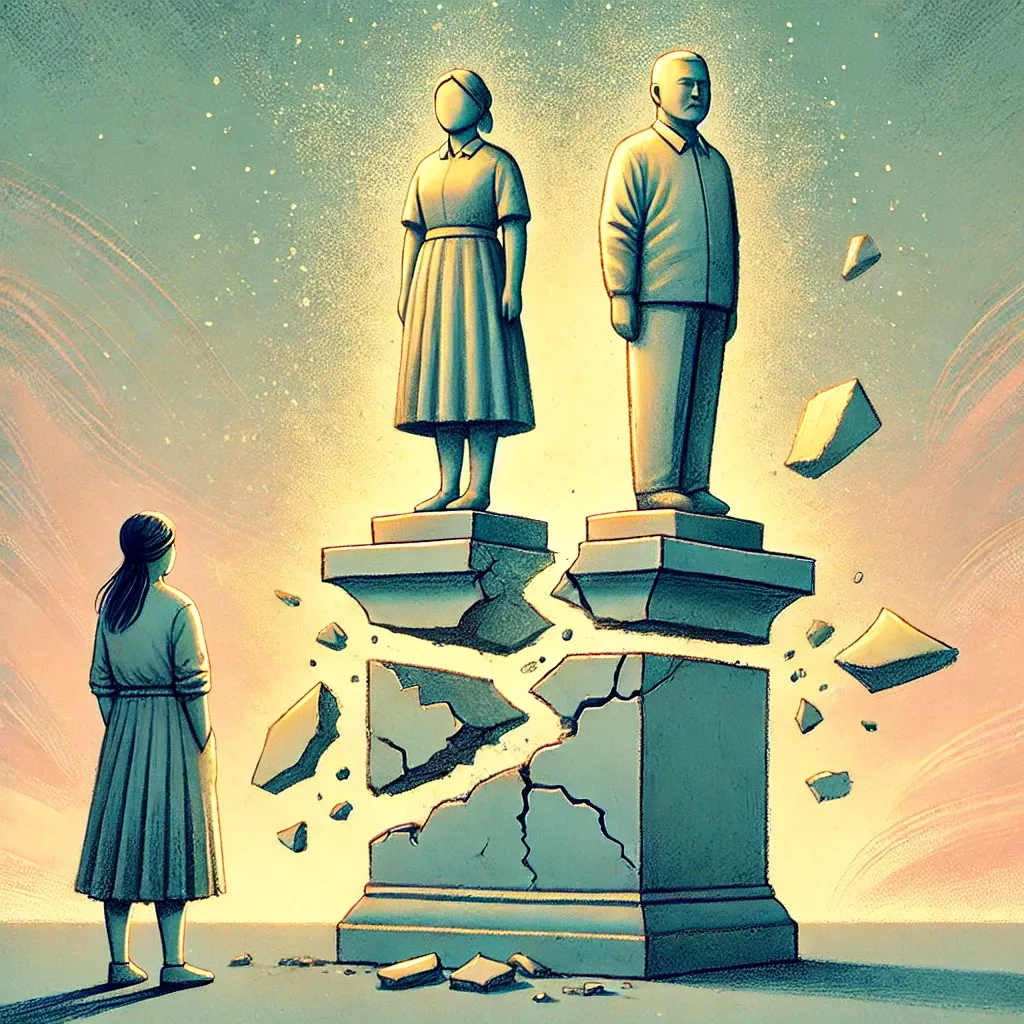Meeting People Where They Are—But What If You Don’t Like What You Find?

Every day at work, I meet people at their level. As a consultant, my job is to bridge the gap between complex technical concepts and the understanding of my clients. I analyze their perspectives, break down jargon into digestible insights, and ensure that solutions make sense from their vantage point. That’s what makes a great consultant—not just technical expertise, but empathy.
In my professional settings, this process feels natural. There’s no vulnerability involved, just problem-solving. The goal is clear: take a client from where they are to where they need to be. But when it comes to family, meeting people at their level is an entirely different challenge.
The Hardest Perspective Shift: From Pedestal to Eye Level
For as long as I can remember, my parents stood above me—figures to impress, authority to obey, love to earn. Their word was final. Their expectations were law. I shaped myself around their approval, believing that to be close to them, I had to reach up.
I kept reminding myself this weekend when they were in town: Meet them at their level. Understand them. But as I did, I was confronted with a troubling thought—What if I don’t like what I find?
Meeting them at their level meant dismantling the image I had clung to for years. It meant stripping away the reverence, seeing them not as the infallible figures I once believed them to be, but as flawed individuals, shaped by their own struggles, contradictions, and limitations.
It was disorienting.
Because in seeing them clearly, I also saw the space between us—the quiet, unspoken distance that had always been there. It wasn’t just about understanding them better. It was about realizing that the relationship I thought I had, the one I had worked so hard to preserve, was not what I had believed it to be.
And that shift—accepting them for who they are, rather than making excuses for them in my mind and chasing the illusion that if I became who they wanted me to be, they would be softer, more loving, more open—might just be the hardest one yet. I unconsciously had this idea that maybe if I changed into the mold they wanted me to be, they would be the parents that I needed them to be. But I see now, that the only thing I can change is what I have control of. My parent’s change is not mine to make. It’s theirs. Accepting this truth is the hardest shift of all. We will never meet each other's expectations.
The Cost of Keeping the Peace
For years, I worked to present an image of myself that wouldn’t be rejected. I packaged my identity in a way that would keep me from being disowned, only to realize that in doing so, I had already separated myself from my family. I played the role of the dutiful child, offering them the version of me that made them comfortable. I moved away to physically distance myself, to keep away from being a burden, but as a result, I just distanced myself from my parents.
Our relationship became a one-way exchange: I gave them what they needed to feel at peace. Only coming out during the holidays and big events. I came, I presented myself as the daughter they wanted, hiding every negative thing in my life, I left and I took nothing.
The Blind Spot in My Own Philosophy
Ironically, I always believed I met people at their level. It’s what makes me successful at my job. I listen, I adapt, I don’t take things personally. But when it comes to my parents, all of that goes out the window. There’s an unconscious weight of expectations I can’t shake off.
I know the rational answer: Shift your perspective. Redefine your expectations. But how do you evolve something that has been ingrained in you since childhood?
Maybe meeting people at their level isn’t just about understanding them. Maybe it’s also about understanding yourself in relation to them. Not just seeing them for who they are, but seeing yourself for who you are when you’re with them. And maybe, in doing so, you find the power to redefine the relationship—not by lowering expectations, but by reshaping them into something that serves both.